Weekend fair entices visitors with handmade goods, relaxed atmosphere
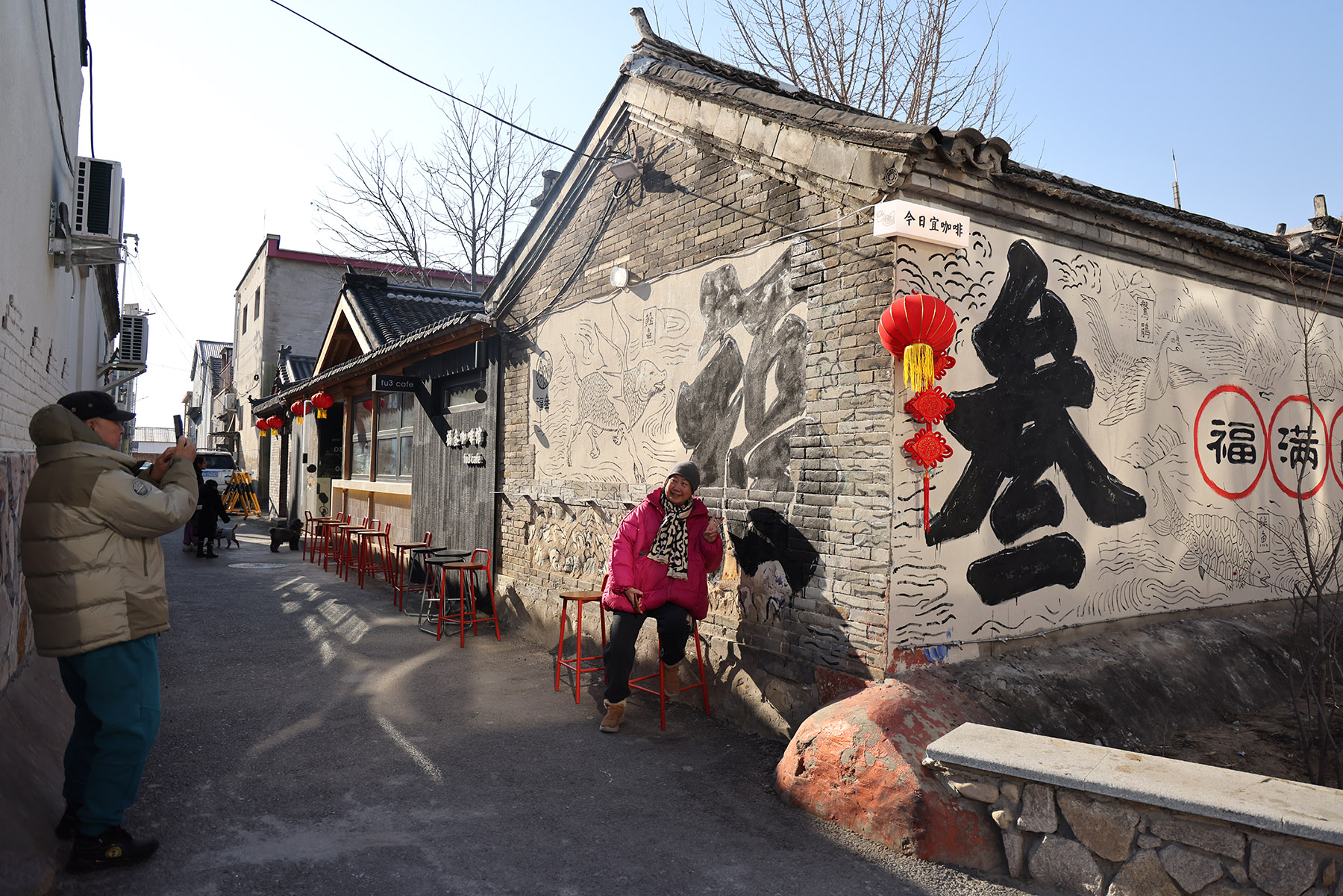
A market fair mushrooming in Beijing's northern suburbs is providing a village-style atmosphere for visitors, and reintroducing them to the simple joys of shopping for handmade and craft items.
The weekend market in Xinzhuang village in Changping district opened in the autumn of 2023 as a venue for trading secondhand merchandise, but its impact was limited.
The fair started to take off in September last year when it was moved back to the renovated main street of the village.
Dong Yanhua, 47, originally from Tieling, Liaoning province, runs Cindy Coffee shop at the market, and is one of the main driving forces behind its successful rise.
READ MORE: Booming recycling market benefits environment
When Xinzhuang Market was first opened, Dong created a WeChat group for vendors to sign up for a spot. "People were attracted to the idea. They came straight to me and said they wanted a spot in the fair. For some periods, demand for places exceeded the supply," she said.
Nowadays, vendors travel from across Beijing to set up their stalls in Changping. At its peak there are more than 120 sellers operating the weekend stalls, but few of them are locals.
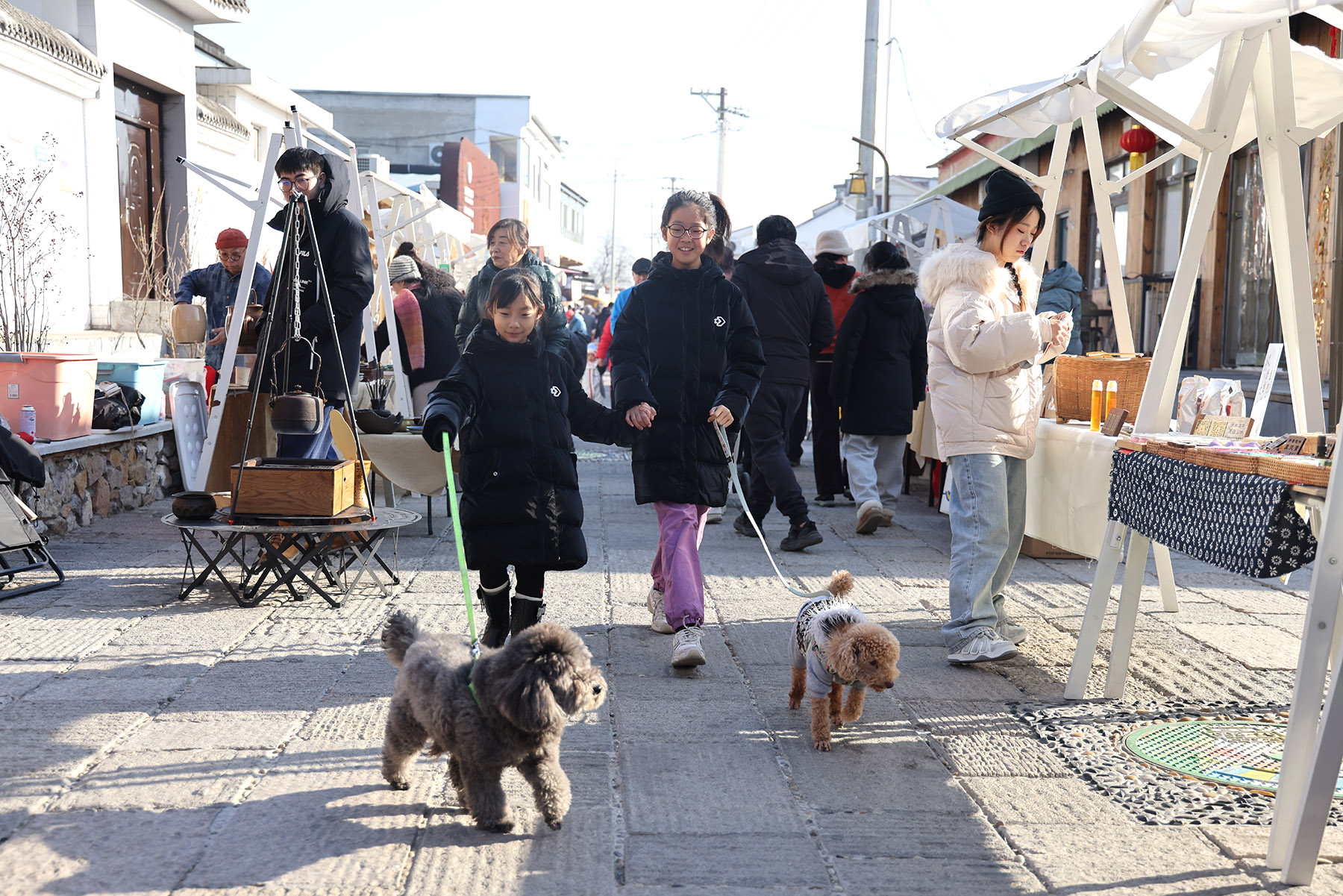
Wang Huan, 37, from Daxing district is one of them. After packaging his bakery goods on Friday night, he gets up at 6 am every Saturday to drive to Xinzhuang, where he offers his baked goods, including pretzels. Most market days he sells around 600 items.
His market stall has given him the opportunity to display his professional skills while earning a profit. Wang is a student of master pastry chef Cao Jitong, and has held several senior positions in the industry, including working as a manager for his master's baking arts gallery.
"After all these years, I feel lucky that I am still in the industry and can bake what I am interested in," he said, adding that he constantly works to improve his products.
By featuring bespoke decorations and handicrafts, Xinzhuang has also distinguished itself from other marketplaces in the capital. It's earned a reputation as Dali in the suburbs of Beijing, a reference to the market in the Yunnan province city, renowned for its leisurely, laid-back atmosphere.
Xinzhuang Market's rapid growth is also an example of how the concept of village market fair can be broadened and converge with traditional ideas of how city street vendors operate.
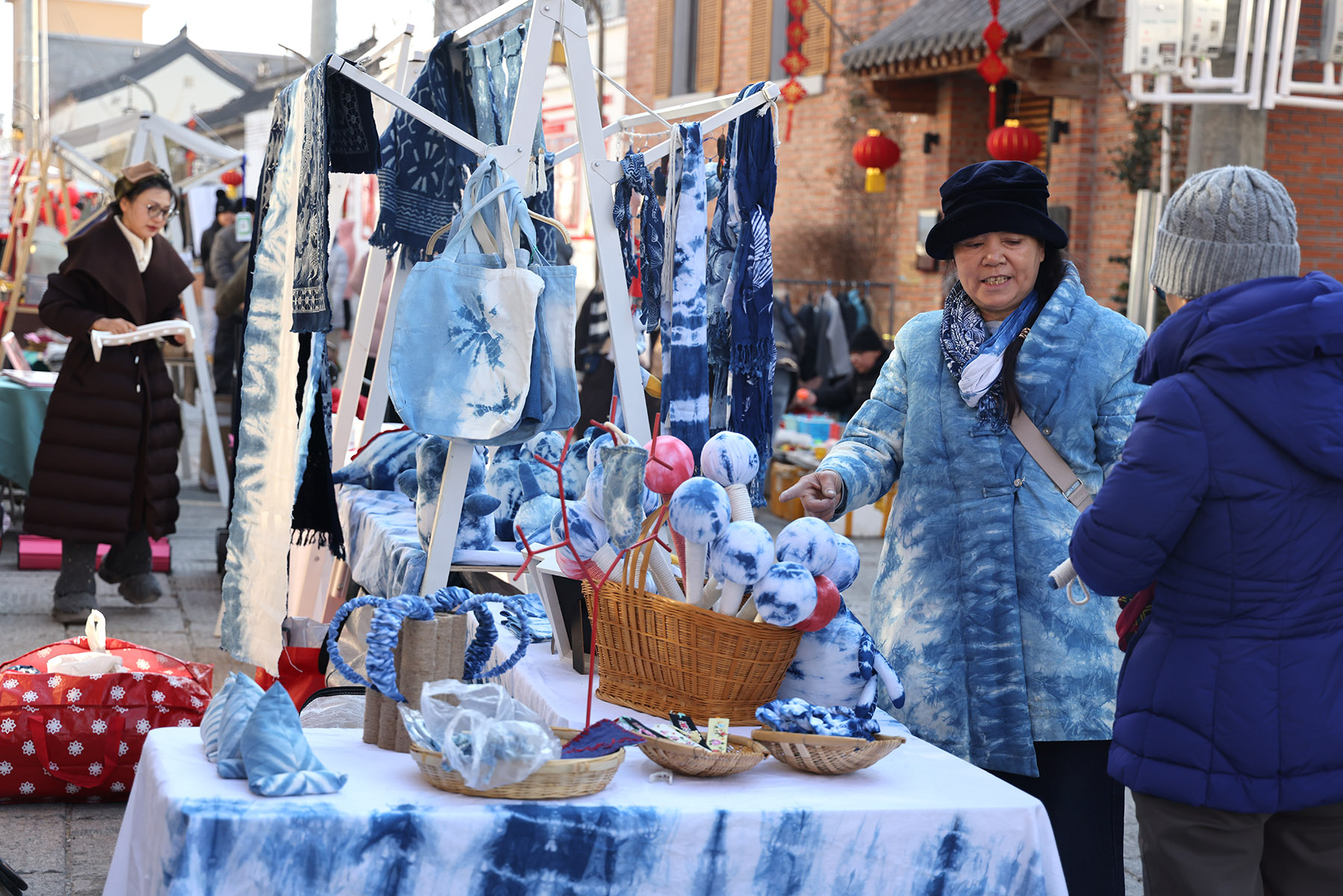
Humble beginnings
Dong opened Cindy Coffee in 2022, when she relocated to Changping for her daughter's education.
She came up with the idea of organizing a market fair in September 2023, when a friend returned from a trip to the Netherlands and enthusiastically told her about the popularity of weekend fairs there.
"Food and drink, as well as daily necessities, were on offer in the Dutch market. And unwanted products could be exchanged at the fairs as secondhand goods," Dong said of what she learned. "I was inspired by my friend and talked with the Party secretary of the village about consideration of opening a market," she said.
With the village's approval, Dong organized a secondhand goods market in the street, and then shifted it to a vacant spot inside a grove near the community. Even then, she hoped the market stalls could highlight artistic flair and individuality. "If stall keepers use a tablecloth and decorate their booths with flowers, they make trade (not only a transaction, but) a conscious lifestyle choice," she said.
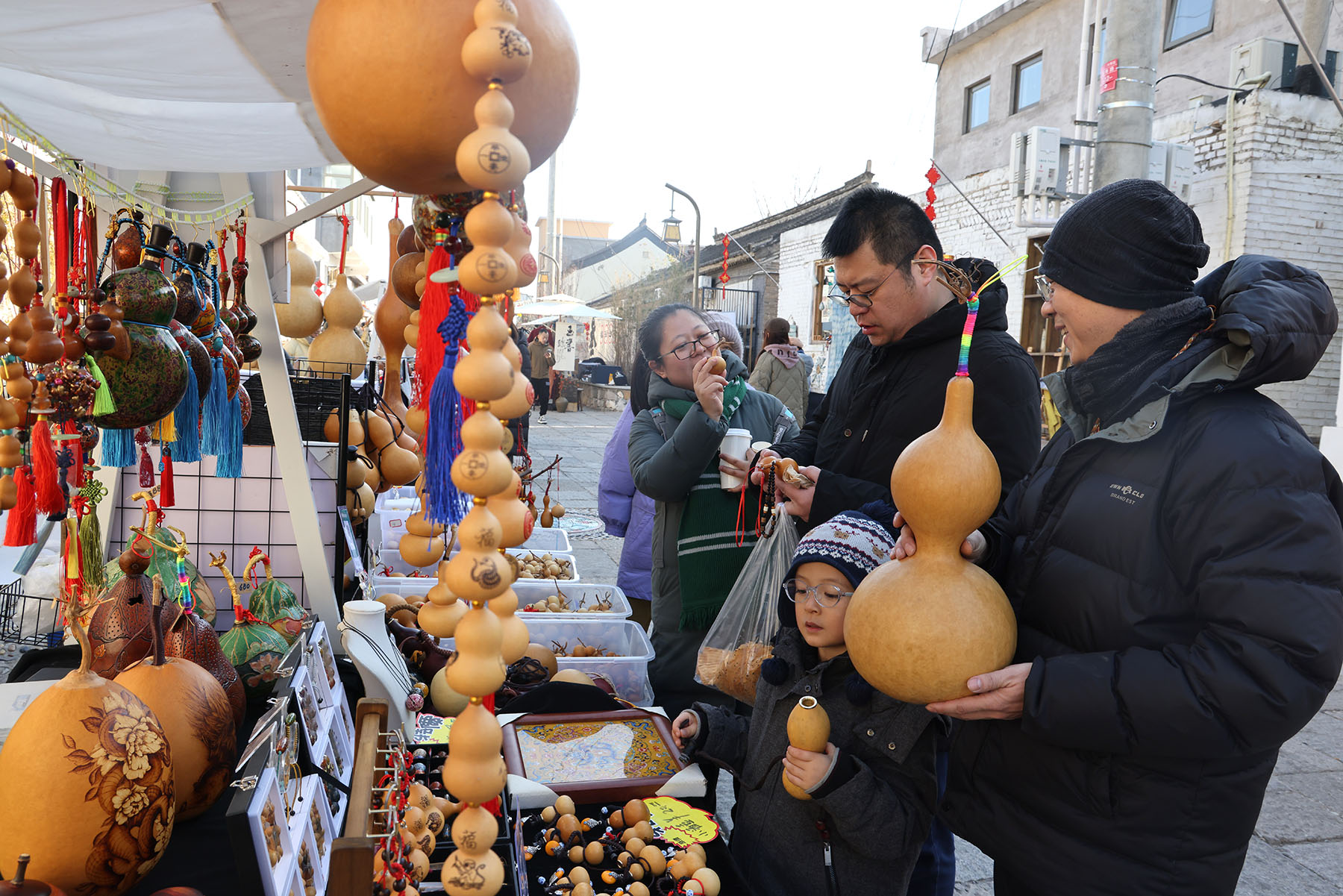
Improvements to the streetscape also helped propel the market forward. Three years ago, hanging electric wires were clearly visible on the main road of Xinzhuang, along with unsightly utility poles. Nowadays, the wires are hidden below ground and the road is covered in flagstones. The makeover has been accompanied by the sprouting of restaurants, bread shops, cafes, gift stores and supermarkets.
Dong's coffee shop is a place where people like to sit and chat, which typifies the strong sense of community in Xinzhuang, she said.
"Unlike the usual experience of just visiting a place to shop, people are warm and welcoming in the village. You feel a genuine connection and become part of the community," she said.
About 80 to 100 spots are usually made available at the market fair every weekend, with each one costing 50 yuan ($6.80).
Dong hopes the homemade wares and goods offered for sale have some "emotional value" for buyers. "If the designs of the goods are cute, they can give people a calm and peaceful feeling. They feel different from mass-produced industrial products," she said.
Dong is hopeful more craftspeople will be attracted to the weekend fair to communicate with and influence other stallholders, who are eager to improve their wares.
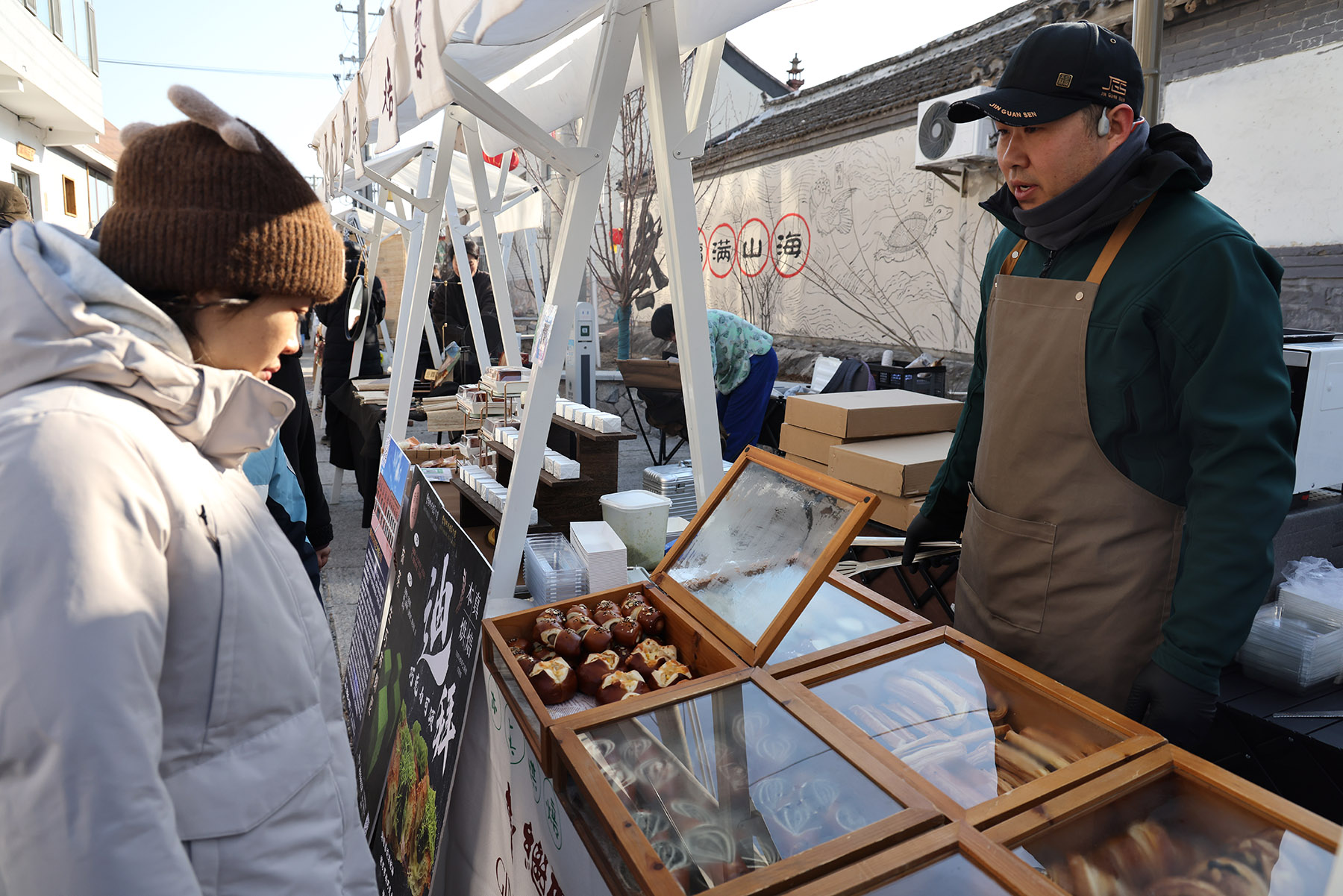
Young shoppers
On a chilly weekend after Chinese New Year, the market was bustling with many young shoppers from all over Beijing.
Gu Mingfei, 26, a native of Changping who works in the financial industry in Beijing, said she liked the atmosphere steeped in a "New Year vibe". What's different about the fair are the cultural and creative products that always catch her eye, she said.
She first visited the market in the middle of January, when she drove 20 minutes from her home to experience the hustle and bustle as Spring Festival approached.
Gu said she is in the habit of going to a market or temple fair during the winter break, and usually goes to Shahe Market with her family. "After this fair opened, I was pleasantly surprised to find that a fair worth visiting is so much fun," she said.
During her first visit, she purchased a refrigerator magnet in the shape of a loaf of bread for less than 20 yuan. On her second visit in February she bought a fluffy snake-shaped toy. "Most of the handicrafts here, I think, are worth buying," she said, adding that the market environment made her feel calm and joyful.
Gu's friend Xu Xiaoman, 29, who also works in the finance industry, purchased jianbing guozi — pancakes rolled into a crispy fritter.
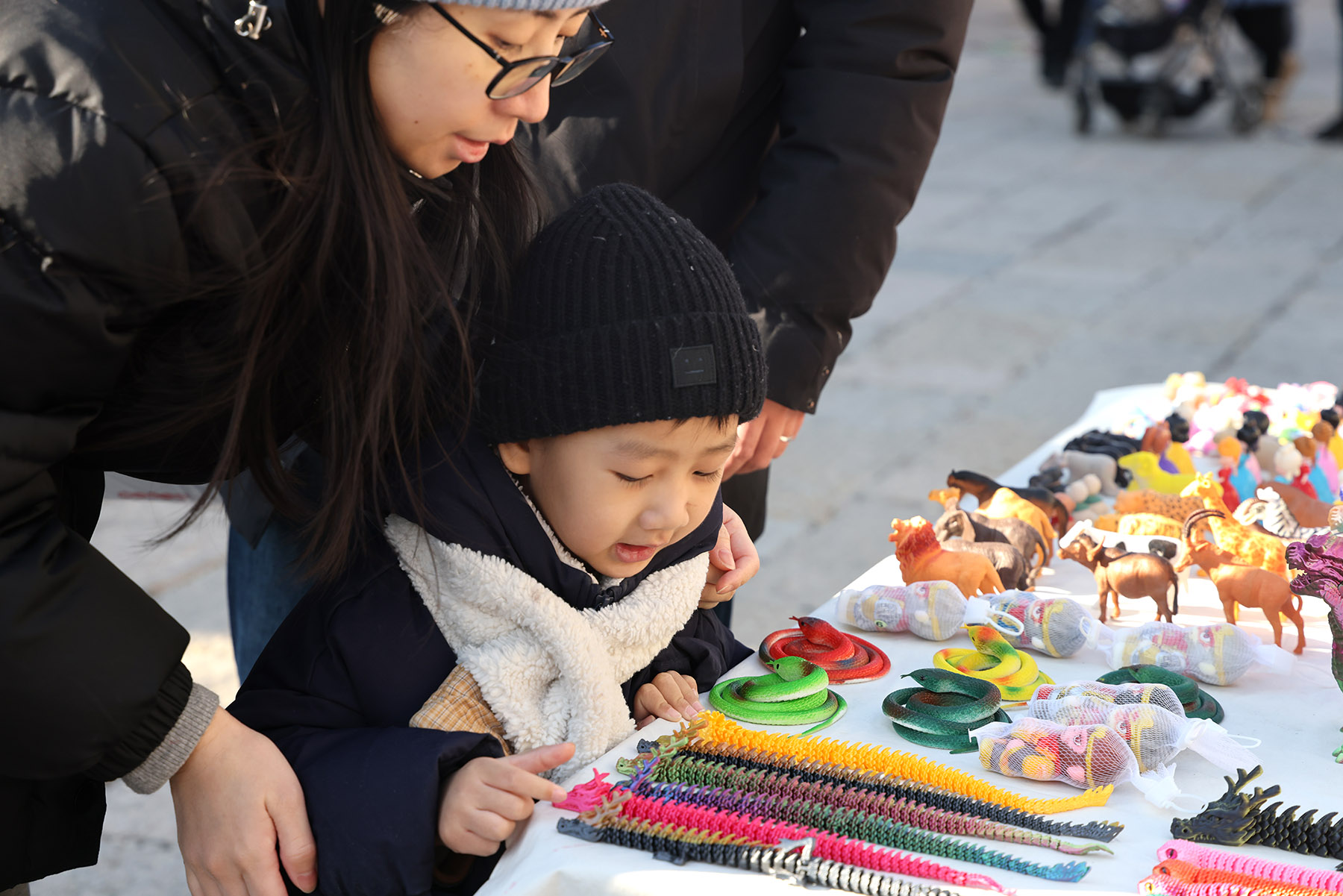
Xu said the prices of food and goods at the market are reasonable. She said the market resembles Nanluogu Xiang shopping alley, a popular hutong that combines traditional charm with modernity in Beijing's downtown area.
"The market here is not as formal as Nanluogu Xiang, and it relaxes me because I can pick up stuff I like and bargain with the stall owner," she said.
Liza Seniagina, 32, has been to the market twice. While she sees that the items are fairly priced, she has also enjoyed experiencing Chinese New Year through the eyes of the locals.
Dong, the fair organizer, said that the village has a resident population and a daily flow of people. She hopes the market attracts new vendors who view it as a place to make their own goods to support themselves.
Wang, the baker, who has been a market stallholder for six months, said that after each fair day, he rethinks how he makes and markets his baked goods.
"Every time you have an experience, every time you have a problem you try to find a solution," he said. "You consider how to make adjustments for tomorrow's fair, and the answer might come at the end of that day."
Baking bread is not easy, as it takes time and involves many steps, Wang said. "It takes at least four hours to make this bread, from start to finish. That's not a short time, and it's actually the minimum time required for any bread," he said.
He added: "Baking is a lifelong career, and the market fair here is an opportunity, for me and my master's baking arts gallery to let more people know about pretzels and the delicate craft behind them," he said.
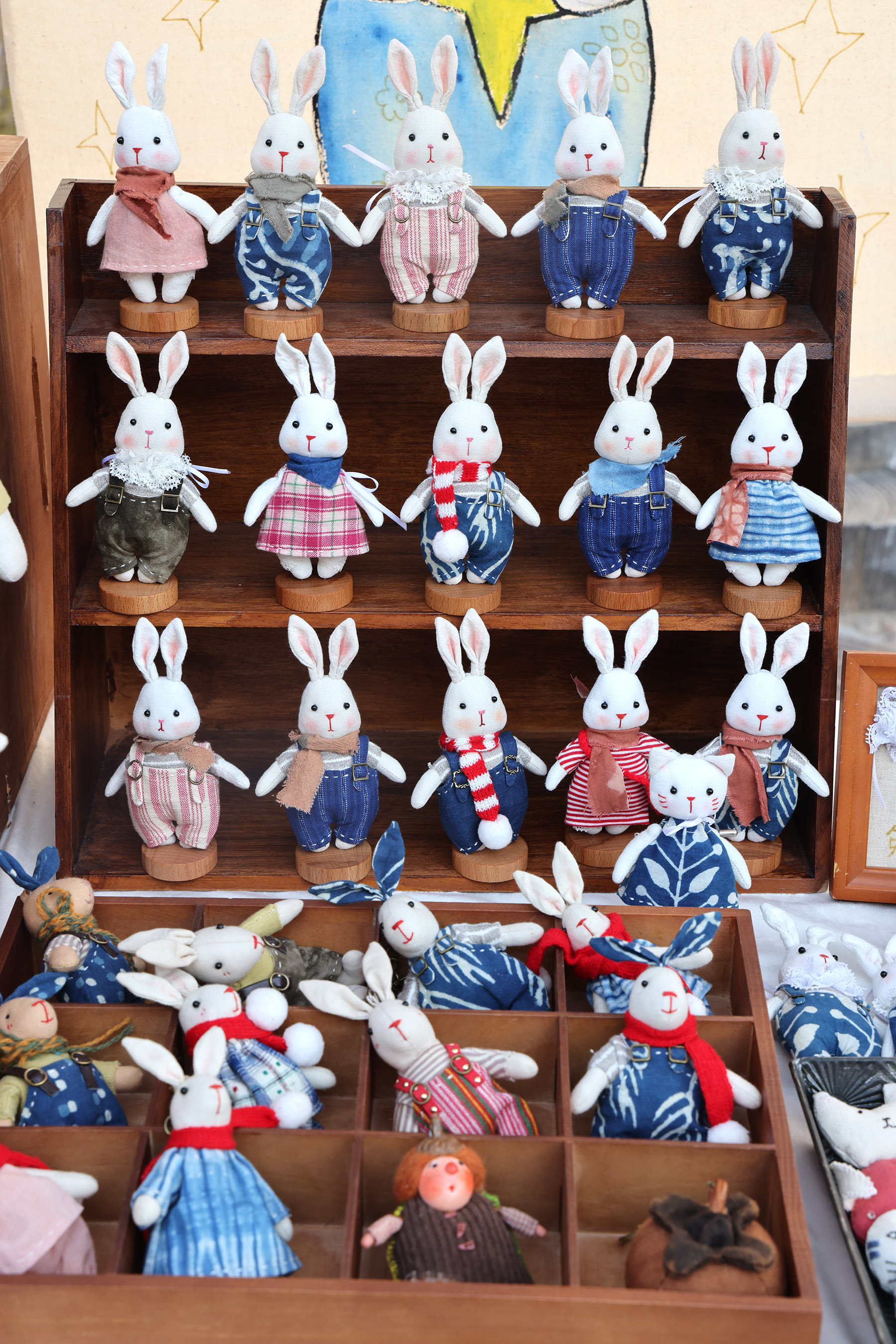
Offline experience
Sun Xiaoqun is a frequent visitor to such markets. She said that due to the pandemic some fairs and morning markets were closed.
After the market in Xinzhuang opened, her friends invited her to join them for a stroll around the fair. There was no pressure to buy anything.
"I found many accessories were displayed at the market, and it was a lot of fun for me to take a good look at them. I usually browse for accessories and buy them online, which is a bit less fun," she said, adding that the market stalls have exquisite items that are completely different from those in wholesale markets.
Sun is also a tea expert. A friend suggested that she open a teahouse in the village after her shop in Beijing's Haidian district closed a few years ago.
ALSO READ: Beijingers unwind in 'hush hour' as community libraries spread
"While the rent and overall costs for a shop here are relatively high, the village has a good atmosphere with lots of interesting shops and activities," she said. "Sometimes, opening a shop just takes a bit of luck, and I need to consider it carefully."
She enjoyed a fulfilling day in the village, staying until evening before heading home.
"I've visited the Guanyuan morning market in Xicheng district and Shilihe wholesale market in Chaoyang district," she said.
"The market fair here in Changping, however, is different. It features smaller stalls and more flexible locations, which frequent visitors might find a novel experience," she said.


